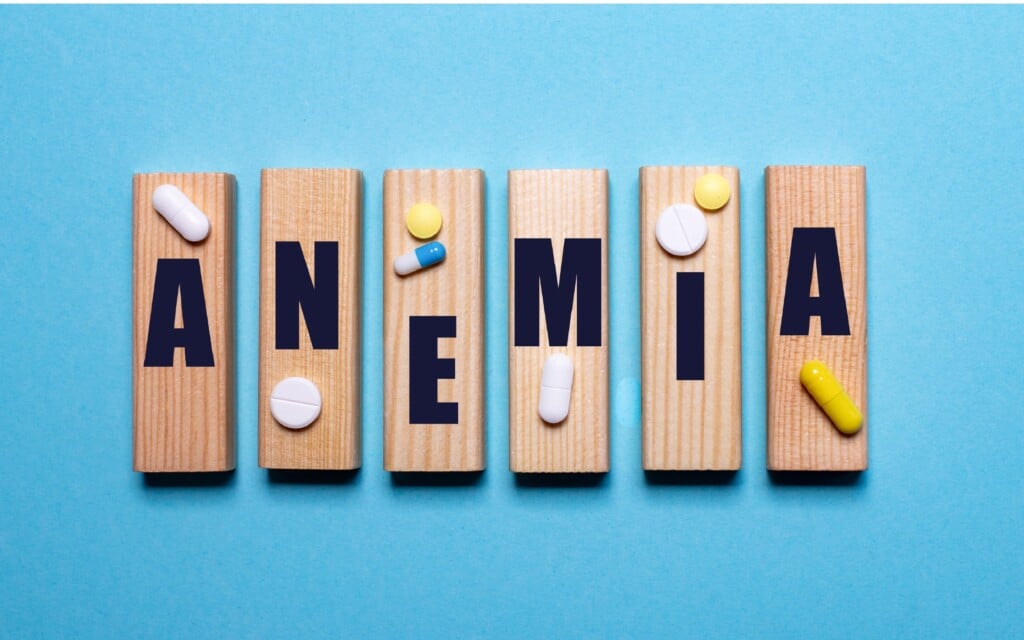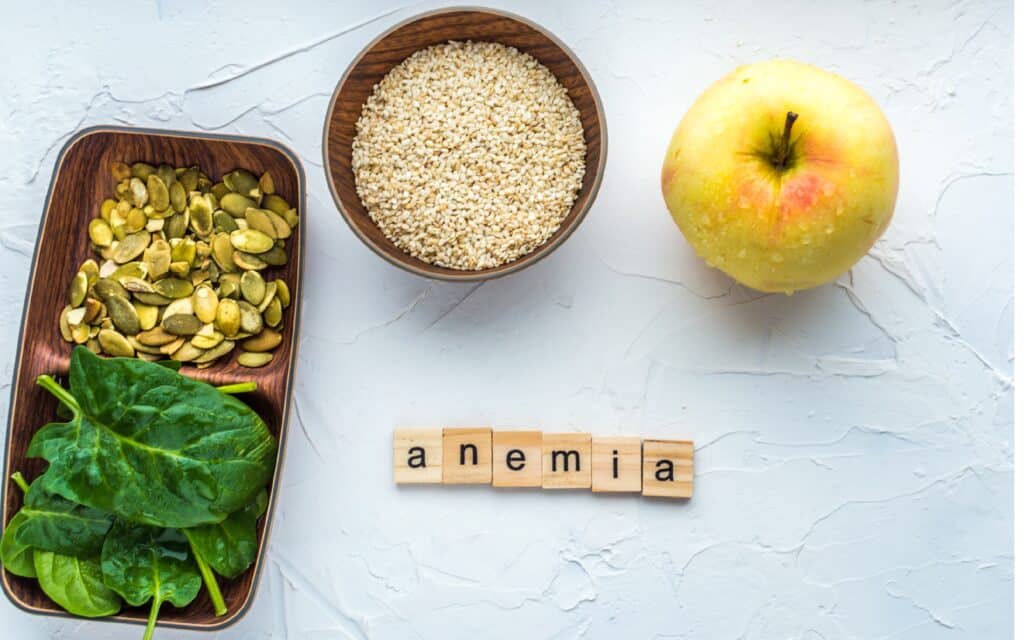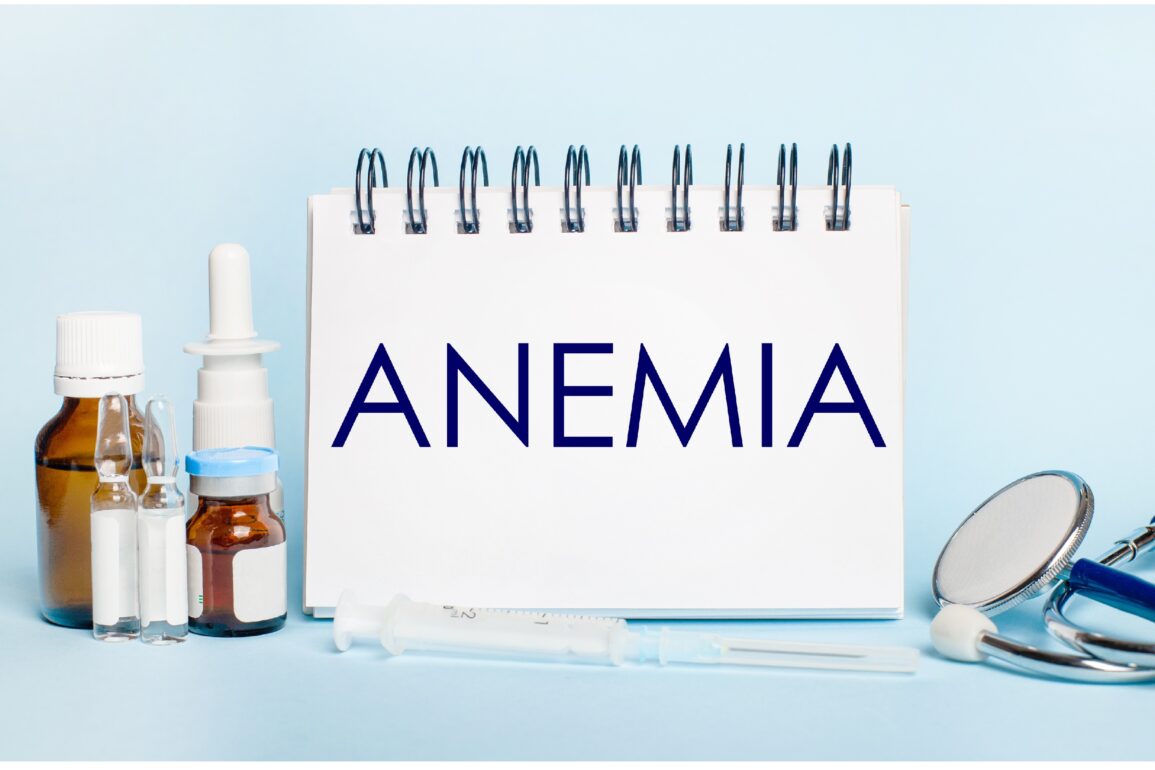Are anemia and insomnia linked?
Recent studies suggest they may be.
For years, we’ve known iron deficiency, insomnia, and anemia have had a basic connection. After all, if you’re low on iron, you’re more likely to suffer with symptoms like fatigue, tiredness, and general sluggishness.
People with anemia symptoms can also be irritable and have a harder time falling asleep at night, causing increased risk of insomnia.
Though studies into the deeper links between anemia and insomnia are ongoing, recent research indicates there could be a gene associated with both iron-deficiency anemia, and insomnia.
Let’s take a closer look at how your iron levels might affect your sleep.
Anemia and sleep: Can anemia cause sleep problems?
So, can anemia cause insomnia?
Our research on this topic is still somewhat limited. We’ve seen studies suggesting iron-deficiency insomnia could be an issue, as iron-deficiency anemia is usually linked to lower sleep quality.
To understand the link between anemia and insomnia, let’s first discuss anemia. This is the condition where your body has a low supply of red blood cells. Your red blood cells are responsible for delivering oxygen throughout the body.
The most common form of anemia is caused by iron deficiency. We need iron to create the hemoglobin protein helping red blood cells to transport oxygen around the body.
Iron-deficiency anemia is more common as we get older. It also has a higher chance of occurring in pregnant women, who generally need a supplement of iron to produce more blood cells.
If you don’t get enough iron, your body’s red blood cells can’t operate properly to move oxygen around the body.
This leads to side effects ranging from dizziness and shortness of breath to weak hair and nails, and problems with healing. The most common symptoms are feelings of fatigue, sluggishness, and weakness.

How are iron and insomnia linked? How does iron affect sleep?
So, we know anemia and sleep are connected, because lack of iron can make you feel fatigued. However, we haven’t answered the question, “Why is insomnia a symptom of anemia?”
Most people assume the feeling of fatigue would cause you to sleep more. However, there’s a crucial difference between being fatigued, and being sleepy.
Fatigue isn’t necessary a precursor to sleep. You can go to bed feeling exhausted, but the link between iron deficiency and sleep might mean you feel too exhausted to sleep.
Another answer to the question “How does iron affect sleep?” is it influences the way you feel. Anxiety is one of the biggest causes of insomnia, and it’s also a common symptom of anemia.
Anxiety stimulates your sympathetic nervous system, creating a sense of fight or flight panic in your body. When this happens, your production of cortisol increases, and your level of melatonin (the hormone you need for sleep) decreases.
Some studies indicate the issues responsible for worsening insomnia, like restless leg syndrome, are exacerbated by anemia. Research into restless legs syndrome and iron indicate a lack of iron in your blood stream can damage the action of neurotransmitters like dopamine.
Dopamine is especially important for RLS because it maintains muscle activity and movement. If you’re not getting enough dopamine, this can lead to the involuntary spasms in RLS and hence insomnia.
Iron deficiency and sleep: The latest research
So, can lack of sleep worsen anemia, and is anemia linked directly to your risk of insomnia? The research into these questionsis evolving.
Various studies released in the last few years have explored the genetic connections of insomnia, conducting genome-wide analyses to identify how DNA influences on insomnia complaints. A gene called MEIS1 is strongly linked to insomnia.
Now, studies are also beginning to show this gene is associated with iron-deficiency insomnia too. We’re still in the early stages of understanding the impact iron deficiency can have on the way adults sleep.
Most of the research in this area has focused on the link between restless leg syndrome and iron deficiency. Fortunately, new studies are underway.
Prompted by the discovery of a gene linked to both insomnia and anemia, Chinese scientists undertook a large-scale study to investigate whether having anemia elevates insomnia risk. The study was conducted with data from more than 10,000 individuals, over a period of 6 years.
In the analysis, the researchers were careful to control for a range of factors capable of causing insomnia not related to anemia, such as smoking, BMI and alcohol consumption.
They also controlled for the presence of various health conditions, like high blood pressure. Eventually, the researchers found several important connections between anemia and insomnia:
- Men with anemia were more likely to be at risk of insomnia than men without anemia.
- The presence of prior anemia led to a 32% higher risk of insomnia 6 years later.
- Significant levels of anemia were strongly linked to higher risk of insomnia.

What can you do about anemia and insomnia?
Iron deficiency and sleep clearly have a connection, though researchers aren’t sure how deep it goes yet. If you’re worried about anemia and insomnia harming your quality of life, you might benefit from taking steps to tackle your iron deficiency.
If you’re experiencing symptoms of chronic insomnia, like trouble falling asleep, difficulty staying asleep, or even issues like sleep walking, you can make an appointment with your doctor to check your iron levels.
Notably, there’s a lot of overlap in today’s insomnia research between a sleep-supporting diet, and an iron-fortifying diet. Many iron-rich foods, which help maintain healthy iron levels, can also help with sleep. For instance, nuts, dark leafy greens, legumes, and grass-fed meats are all common examples.
Many of the fish containing high levels of omega-3 fatty acids are also high in iron. Eating more iron rich foods like spinach and kale is an excellent way to start tackling both anemia and insomnia issues at once. Additionally, it could be excellent for your diet.
Rectifying iron deficiency insomnia
Other ways to address anemia insomnia include the following advice:
Reducing caffeinated drinks
If you regularly drink a lot of tea or coffee, both of these contain a lot of caffeine. We know caffeine isn’t the best at helping you sleep soundly in the first place. However, caffeine also contains polyphenols, which can inhibit your absorption of iron, when consumed in high amounts.
Understand phytic acid
Phytic acid is a natural substance occurring in a lot of plant seeds. This substance is an excellent antioxidant. However, it’s influence on nutrient absorption means it’s not always ideal for your sleep pattern. Phytic acid makes it harder to absorb substances like iron, which could lead to worsened symptoms of anemia.
Look at supplements
If you already get a lot of iron in your diet, taking a supplement probably won’t do much for you. However, if you’re low on iron, a supplement can help to get you back in balance. The amount of iron your body needs each day varies depending on factors like sex, age, and weight. Most people need between 8-15mg. If you’re low on iron, ask your doctor about taking a supplement.
Take vitamin C
If you’re trying to increase your intake of iron, you should also be looking at increasing your vitamin C intake. Vitamin C is a crucial nutrient in its own right, responsible for helping the immune system, muscles, skin, and joints. This vitamin is also responsible for maintaining a healthy absorption of iron. If you’re worried about an iron deficiency, consider adding more vitamin C to your diet.
Work on your sleep pattern
If you’re struggling to sleep for any reason, it always makes sense to work on your sleep hygiene. Speak to your doctor about your sleeping issues and see if there’s anything you can do to improve your chances of a good night’s rest. Sometimes, following a schedule and changing your sleeping patterns can make a world of difference.
Anemia and sleep: Finding the link
While there’s still research to do into the connection between anemia and sleep, researchers are rapidly discovering a deeper link between the two conditions. The chances are if you already have an issue with anemia, you might have a higher risk of insomnia too, and vice versa.
Of course, you should never just assume you have a nutrient deficiency causing your sleeping problems. The best way to ensure you’re getting the substances you need in your diet is to speak to your doctor and maybe get some blood tests.
Your sleeping issues could have nothing to do with your diet, or they could come down to something as simple as an iron deficiency.
Siestio. Sleep matters.
Medical disclaimer
You must not rely on the information provided on our website as an alternative to medical advice from your doctor or other healthcare professionals. For more information read our full disclaimer here.







